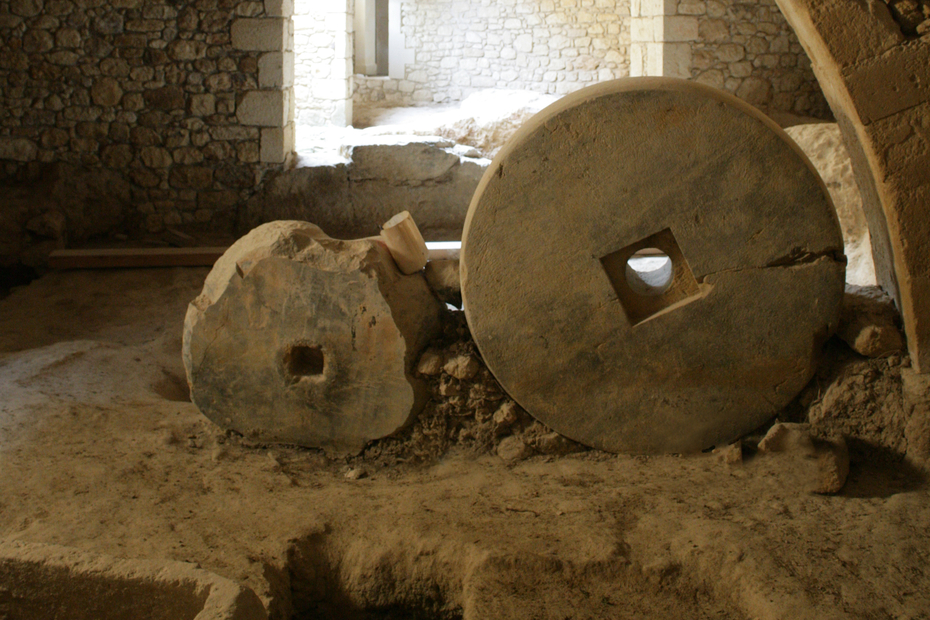The sacred trait the olive tree enjoyed from antiquity was in the early Christian era, transferred to its product olive oil. Olive oil is mentioned both in the Old and New Testament. It became a mystical element. The most important of the sacraments, that of baptism, which seals the baptised as a servant of God, cannot be performed in the Greek Orthodox Church without olive oil. The infant is rubbed with olive oil from head to toe, immersed in water three times and then anointed with Holy Myrrh, which is a mixture of olive oil mixed and various other aromatic oils. Its preparation, most sacred, is the sole privilege of the Head of the Greek Orthodox Church. Colloquially, the unbaptised are often referred to as alathoti—unoiled, or unanointed.
Monasteries in Greece almost always include an olive grove. The olive crop secured the sustenance of the monks and the oil is necessary for the burning of lamps before the icons or for performing the sacraments. Today many monasteries bottle part of their olive oil and at times visitors can purchase some.
Greeks also make offerings of olive oil to churches and monasteries. To this day one still sees bottles of oil left in church by the faithful, used mainly to light the votives.







